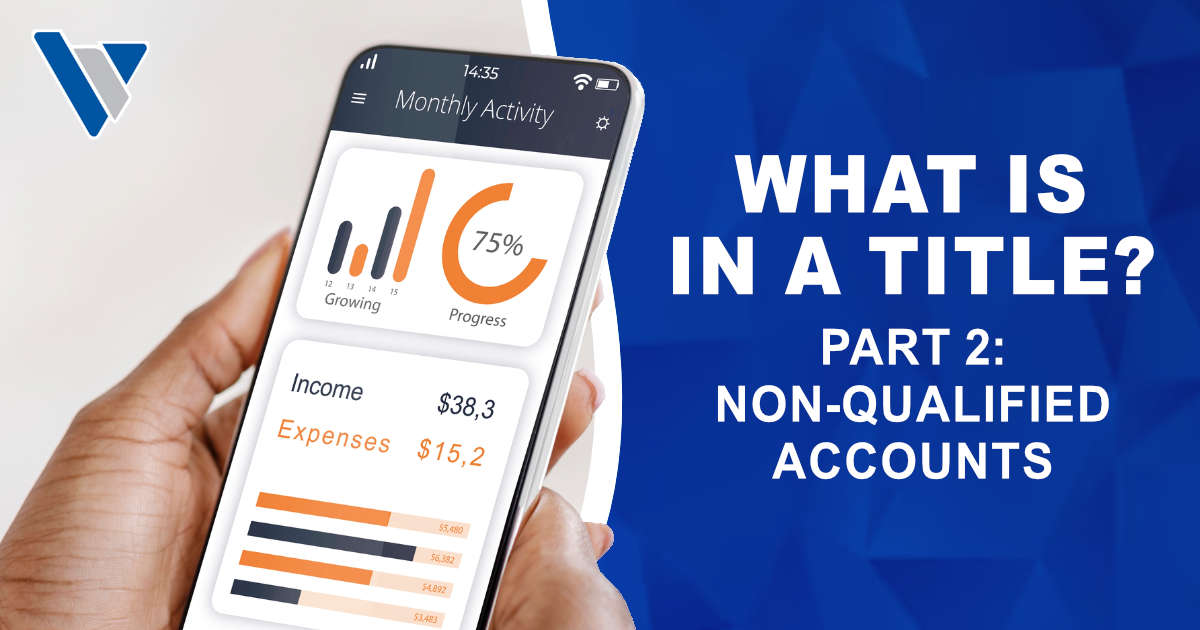In my last article, I discussed the importance of proper titles in regards to qualified accounts,...

Cryptocurrencies by Definition: During meetings with our clients here at Virtus, often times the topic of Cryptocurrencies is brought up. Cryptocurrency is a currency that is strictly digital. This means that there is no physical asset tied to the currency, and transactions or exchanges of the currency are done completely online. These digital currencies use peer to peer transactions to offer an “open to all’ decentralized currency that anyone in the world can use. Peer to Peer transactions means that transactions can go from sender to receiver without any middle agency, such as a bank, to verify or process the transaction. These digital currencies do this by using advanced coding and encryption technology in order to verify and process transactions quickly and securely. The technology that cryptocurrencies typically use in order to verify and process their transactions is called blockchain technology.
What is Blockchain Technology: Blockchain technology is an advanced digital ledger which cannot be altered, that works to verify sender/receiver transactions, processing and keeping record of the transaction almost instantly. These ledgers are public to everyone, but once a transaction occurs that transaction cannot be undone or edited. This ability to process, verify, and keep record of transactions all in the matter of seconds using technology is a completely new phenomenon that eventually could be applied to many different aspects of everyday life.
 This technology can be used in order to cut down processing and verification times on all sorts of everyday tasks and items. As well as offer security since blockchain technology cannot be edited after a transaction occurs. The technology behind blockchain makes it significantly harder to hack than the internet we use today. Some examples of everyday things that could benefit from the use of blockchain technology in order to verify and transact from person to person instantly are as follows:
This technology can be used in order to cut down processing and verification times on all sorts of everyday tasks and items. As well as offer security since blockchain technology cannot be edited after a transaction occurs. The technology behind blockchain makes it significantly harder to hack than the internet we use today. Some examples of everyday things that could benefit from the use of blockchain technology in order to verify and transact from person to person instantly are as follows:
Nothing is Free: The relationship between blockchain and cryptocurrency can be confusing. The way that we try to explain it is that nothing in this life is free, not even transacting on a blockchain. In order for the blockchain to operate it needs a series of “Miners” or supercomputers that solve the encryptions and verify and process these transactions on the blockchain. Even though this process is instant and requires no middle man, these Miners need to be paid for processing a transaction. In order to do this, blockchains have cryptocurrencies which Miners are rewarded with after solving the encrypted blocks. These Tokens have a limited supply, and less and less tokens are given as rewards as each additional block is mined.
This need to pay the blockchain in order to transact on it, brought about these cryptocurrencies that we know of today, which have real monetary values in other currencies tied to them. You can sell these currencies, using a crypto exchange, for US dollars or whichever currency you may want.
The question we usually get now is “why do cryptocurrencies have value, and how do their values increase?” For that question there are a multitude of different high-quality answers. For starters as we said in the previous section cryptocurrencies are used to pay for transacting on the blockchain. So, in order to use that blockchain you would have to buy the cryptocurrency for that blockchain off of an exchange. Some important attributes to cryptocurrencies and currencies in general which make people perceive them to have value are acceptability, divisibility, scarcity, durability, portability, and resistance to counterfeiting. Because cryptocurrencies offer these traits, and can be exchanged for US dollars and other currencies, they are considered to have value as such.
Why these values are extremely volatile in some cases, increasing and decreasing substantial amounts in a short period of time, is for a multitude of reasons. Below are a few reasons as to why people perceive cryptocurrencies to have value and exchange their money for them, as well as some reasons for cryptocurrencies high risk and extreme volatility.
Risk equals reward. If something is expected to achieve a higher return, it has higher risk. This is an investment absolute truth that has been around for centuries. Wealth building is not a short-term-get-rich-quick scheme. It is a disciplined process that we are happy to help you navigate. At Virtus Wealth Management, our advisors are here to help you coordinate every facet of your financial life, so that those facets complement each other and produce enhanced results. If you have any questions regarding crypto currencies, blockchain technology or need any help with any other financial needs, please feel free to reach out to our team or stop by, and we would be more than happy to help assist.
The information presented is for educational and informational purposes only and is not intended as a recommendation or specific advice. Cryptocurrency and cryptocurrency-related products can be volatile, are highly speculative and involve significant risks including: liquidity, pricing, regulatory, cybersecurity risk, and loss of principal. A cryptocurrency fund may trade at a significant premium to Net Asset Value (NAV). Cryptocurrencies are not legal tender and are not government backed. Cryptocurrencies are non-traditional investments, resulting in a different tax treatment than currency. Federal, state or foreign governments may restrict the use and exchange of cryptocurrency. The use and exchange of cryptocurrency may also be restricted or halted permanently as regulatory developments continue, and regulations are subject to change at any time. Cryptocurrency exchanges may stop operating or permanently shut down due to fraud, technical glitches, hackers, malware, or bankruptcy.